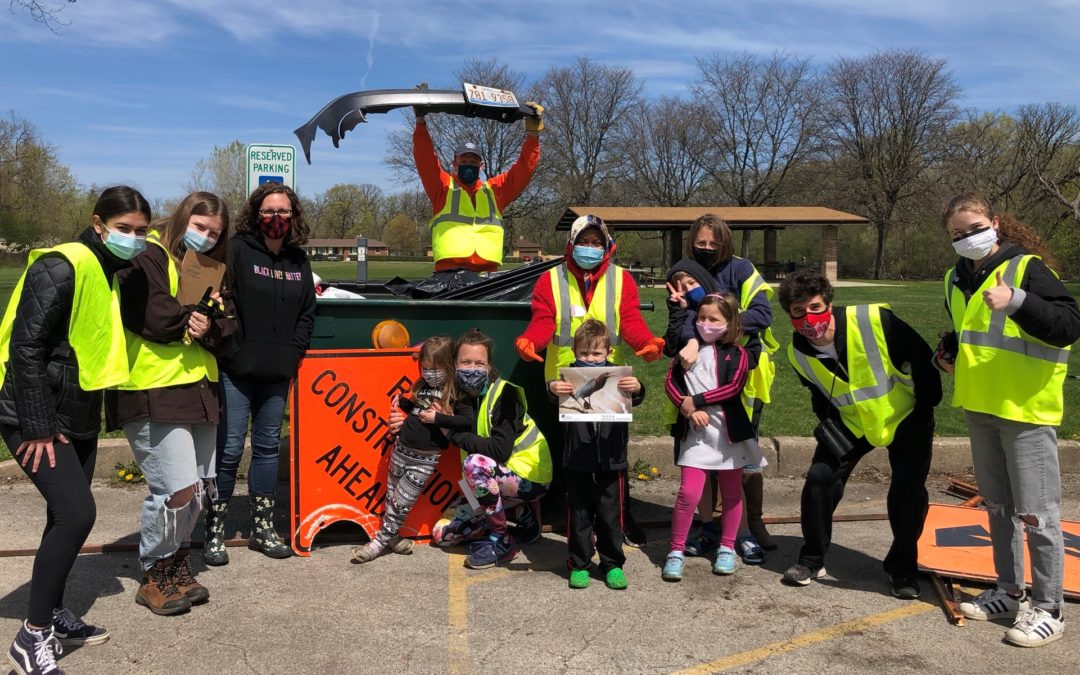Peace I leave with you; my peace I give to you. (John 14:27a, NRSV)
Every spring for the last several years, I’ve participated in some sort of group clean-up of a river in the Chicago area. This year our church teamed up with a local group called Clean Up Give Back (CUGB) and picked up nearly 200 pounds of trash (!) near the Des Plaines River in western Cook County. It was an event that gave me hope (CUGB is made up of mostly high-school students), but it also filled me with despair at the amount of garbage strewn in and around the river. As I was picking up all manner of fast-food containers, beer bottles, and plastic bags, I couldn’t help but wonder about the things we all leave behind.
If you ever took an Intro to Psychology class, you may have learned about Erik Erickson’s stages of psychosocial development. According to this article, his theory “described the impact of social experience across the whole lifespan. (He) was interested in how social interaction and relationships played a role in the development and growth of human beings.” There are 8 of these stages and I’m in stage 7: generativity verses stagnation, a time when a person begins to think about what they contribute to the world. The article says that a question that a person in this stage asks is, “How can I contribute to the world?” Another question might be, “What am I leaving behind?” We may think in terms of legacy when pondering that kind of question, but as I was picking up trash, I also wondered if it could be a question we ask ourselves several times during the day.
What would it look like if we wondered things like, “As I leave this conversation, does this person feel like they’ve been listened to?” or “After I spend time with this loved one, will they affirmed?” or “As I speak from my mind and heart on an issue, will others know of my sincerity and passion?” What can you leave behind in the many interactions you have with others throughout the day? Will it be something that has to be thrown out later or will it be something that will be cherished, embraced, and loved?
In a scene with the disciples before his death, Jesus promises them that no matter what happens, he will leave with them a gift. The word in Greek is parakletos and means many things including comforter, advocate, counselor. Jesus sums it up by saying that one thing would always be with them: peace. May we use that peace to leave behind something similar with others.

